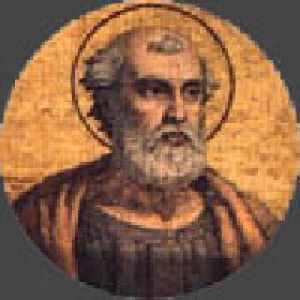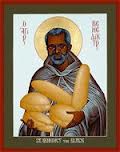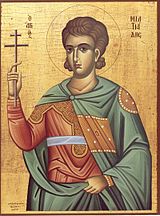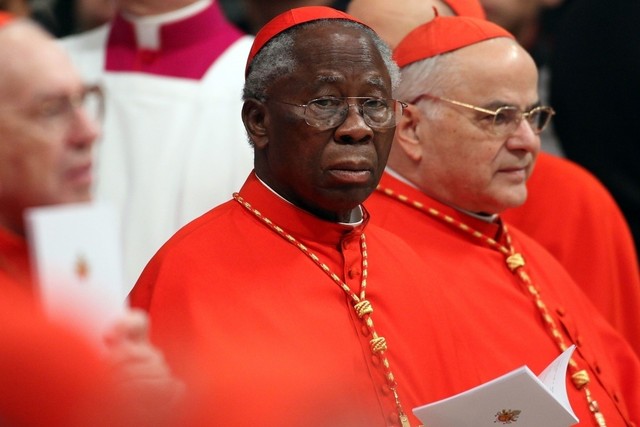Across the Atlantic from the mother continent, Africa, in the US city of Chicago, history buffs will tell you that their city was founded in 1790 by a successful trapper and fur trader named Jean Baptiste Point du Sable. Less well known is du Sable’s background — he was Black and Catholic.
Traditionally, most Black people in America have been members of Protestant denominations, yet African American Catholics have been a presence in America since the earliest days of settlement, and they have played a fascinating part in the story of America and of the Church in the United States.
But it took until 1968 for Rev. Rollins E. Lambert to become the first African American ordained by the Catholic Archdiocese of Chicago. Nothing has since changed in America, and the aftermath of Slavery itself – the institutional racism that comes with America – continues to permeate the Catholic Church there.
In 2005, The Sunday Times in South Africa obtained a copy of a 31-page report called Racism and the Catholic Church, produced by the church’s Justice and Peace Department after a two-year investigation into race relations among the church’s leadership and its three-million-strong congregation.
The hard-hitting report found that the dominance of bishops who are “of European descent” in the Southern African Catholic Bishops’ Conference ensured that only “white European perspectives and interests always set the agenda of the church.”
And that is, in sum, what happened in the choosing of a new Pope last Wednesday, March 13, 2013.
Suffice it to say that there have been three Popes of African descent in history. First, there was Pope Saint Victor I, the 15th Pope who reigned from 186-197 A.D., and Pope Saint Militiades, who served from 311-314 A.D.



The last Pope of African descent was the 49th Pope (from 492 to 496 A.D.), Pope Saint Gelasius I who declared February 14 as “Valentine’s Day” in honor of Bishop Valentine, a priest who had been executed. Gelasius was the third and last Bishop of Rome of African descent.
In those early years in The Roman Catholic Church both Christians of African and European descent helped shape its most riveting doctrines and rituals.
So it was with much pomp and pageantry that Africans in Africa and in the Diaspora received the news that Cardinal Peter Turkson, 64, of Ghana was a strong frontrunner in the race for a new Pope. Africa was expectant primarily because his ascent to the throne would mark a U-turn in a world that has been plagued with deteriorating race relations since the arrival of Western Europeans to West Africa in 1441 A.D.
To this end the announcement of Jorge Mario Bergoglio did not only come as a big surprise but as a symbol of Europe’s resolve to continue the unpalatable history in modern times between Africa and Europe as far as Racism is concerned.
In tandem, most major Western media outlets echoed to the world the belief that Pope Francis is the first Latin American Pope ever, as if that was to appease Africans and people of African descent about the complete passing over of Cardinal Peter Turkson.
The idea of a Latin American Pope will be laudable and Africa will applaud it if it were true!
But is Jorge Mario Bergoglio who was born in Buenos Aires to Italian parents the Latin American that African Catholics the world over would like to see? The only ‘Latin American’ about Bergoglio is that his parents immigrated to Argentina.
That much can be said of the Italian football star and prolific striker whose parents immigrated from Ghana, Mario Balotelli. But Balotelli whose middle name is the same as Bergoglio’s – Mario – will never and can never be Pope if he were as prolific a Cardinal as he is a striker.
Otherwise there’s no rhyme or reason why Balotelli would be a constant victim of ‘monkey chants’ in Europe and in particular Italy, at most football games! His African descent does not seem to escape the ever watchful eyes of his European fans and haters.
Certainly not!
So, no matter how much the Catholic Church coats Bergoglio, no matter what Western media outlets would like Africa and the rest of the World to think about this new Pope, the basic modern paradigm of institutional racism remains unshifted in the Catholic Churches proceedings.
Western Europe’s ideology in modern times of racial superiority continues to rule its ugly head within a religious organization that preaches a common humanity.
Branding Jorge Mario Bergoglio as the first Latin American Pope swerves the discussion from questioning why since 500 A.D. only people of European descent, White people, have occupied the Papacy.
Perhaps, this way of suppressing the non-white Hispanic and African outcry that this choice deserves may be politically expedient, but it underscores what people of African descent everywhere in the world think and continue to believe about a Church whose foundations were equally laid by African Popes and Saints before 500 A.D.
Africa must continue to wait until Europe, White people, can decide when to install a Black Pope?
Clearly, the Catholic Church that is parading through our African streets is not the same Catholic Church that our forefathers help build. This one is quite different!
The Catholic Church we know now is the one that sends out ‘black smoke’ to signify the lack thereof of good and sends out ‘white smoke’ when a good decision is made.
This new Catholic Church is the very one many of us, Black people everywhere, would like to eschew!
But as long as the Catholic Church continues to enlist Black people and its teachings continue to affect some Africans, it is only respectable and prudent that an association be formed to press for an independent inquiry on racism within the Church similar to ones we have seen appointed by various organizations to review Church procedures for dealing with accusations of paedophilia.
This is perhaps the only way the Church and its white bourgeoisie can restore its long broken sanity in its human relations with Africans and Black people the globe over.
Until then, it is only expedient that Africa begins to rethink its relationship with the Roman Catholic Church and peradventure ignite the renaissance that some of its largely overlooked Orthodox Churches seriously need.










